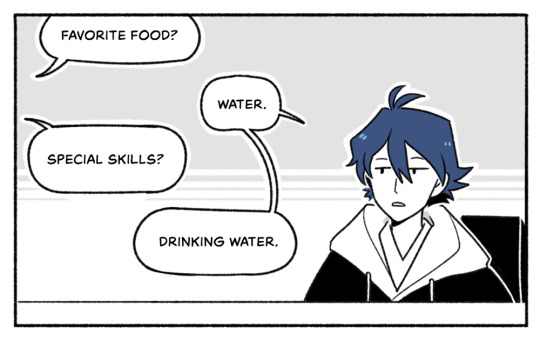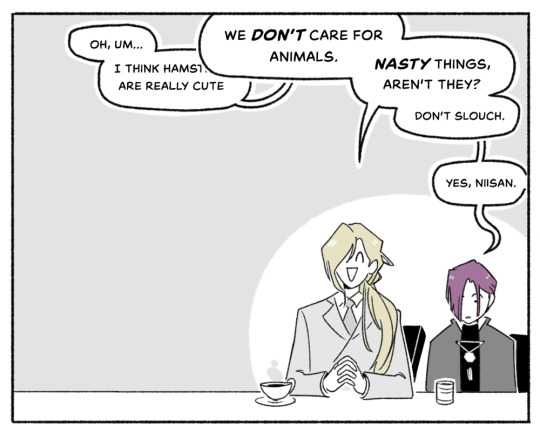#Market Opening
Explore tagged Tumblr posts
Text
Mastering Intraday Stock Trading: Strategies, Tips, and Risks
Intraday stock trading, also known as day trading, is a high-stakes endeavor where traders buy and sell stocks within the same trading day. It’s a thrilling pursuit that requires skill, discipline, and a deep understanding of the market. In this article, we’ll explore the world of intraday stock trading, covering strategies, tips, and the inherent risks involved.### Understanding Intraday…

View On WordPress
#Brokerage Fees#Capital Management#Commissions#Contrarian Trading#Day Trader#Day Trading#Diversification#Economic Events#Emotional Trading#Financial Instruments#Financial Markets#Intraday Trading#Investment Strategies#Market Analysis#Market Behavior#Market Liquidity#Market Opening#Market Psychology#Market Research#Market Sentiment.#Market Timing#Market Trends#Momentum Trading#Portfolio Management#Price Fluctuations#Risk Assessment#Risk Management#Scalping#Short-Term Trading#Stock Market
11 notes
·
View notes
Text
Once again, you can be an English major. a seasoned journalist. an established author. a famed literary critic...and you will still scratch your head over the junk that makes it big. Public opinion has no worth. Just write what you want.
"But I don't want to share something that isn't perfect" why not? everyone else does.
#that goes quadruple infinity for fanfic writers btw#cannot think of a more open market than writing fanfic#you just pour your heart out onto the interwebs#some 12yo says “this is cringe”#you block'em and post the next chapter#and pretty soon eight ppl are sobbing in your comments and keysmashing from the glory of your angsty crackfic#including the 12yo who has their nose in the proverbial corner for being cringe#think of lit critics as 12yos writing “this is cringe” and they are much easier to ignore
4K notes
·
View notes
Text

Out of sight, out of - wait.
[First] Prev <–-> Next
#poorly drawn mdzs#mdzs#wei wuxian#granny wen#a-yuan#It's always fascinating how colours translate from the page to the screen.#It would probably surprise a lot of people to see what some of these comics actually look like in physical form.#My lighter colours takes about 3-4 washes before it shows up on scan which means it tends to ripple the page.#And my yellows and oranges are drastically different colours when scanned compared to the ink colour.#There's about 20 or so comics where everyone's hair is purple - because it scanned in the exact same colour as my light grey.#Wait my book is right here in front of me so I can...yeah...Comics 57-77 were indeed purple.#This is all to say - is it not fascinating how what we see is often not the full truth of what the subject truly is?#Is it not fascinating to open another episode that reminds us that despite everyone's claims they could totally spot the evil YLLZ-#-The man walks around among them for months as no more than a man haggling for deals like the rest.#It's almost as if he's just a person. It's almost as if none of us - no matter what we do are really anything more than just a person.#Your good acts will be overtaken by how other's interpret you in negative light.#Just as easily are people willing to forgive crueler actions if they hold you in high esteem.#But what's real? Is the page I hold the real version of this comic? Is it the one you look at?#Is the man known as Wuxian the most himself when he is alone or on the battlefield?#Perhaps he is and has always been a scared orphan boy lost in the market.#I think there is no good answer to any of these questions.#But I do know that panic rising in WWX as he frantically looks for A-yuan was for more than one boy.#To be human is to have layers around a delicate center. We only really grow around our wounds from childhood.#In other words; Donkey from Shrek would also probably call Wei Wuxian an onion. I'll see myself out now.
1K notes
·
View notes
Text






Sant Jeroni monastery in Barcelona
#The monastery also has its own farmland and I happened to visit on a day when the veggie market was opened#But it was so nice omg the receptionist told me that you can book a night and sleep over there and have access to areas that aren't open#for visitors (upper rooms and a garden)#and he showed me around there 🫣 I didn't take pictures of these areas though#Seriously considering booking a room there....#And then I could take pictures at various times of the day.... Maybe even draw it ...
378 notes
·
View notes
Text





Honda S2000 Type V, 2000. A Japanese market model that featured variable gear ratio steering (VGS), a steering system that continuously changes steering ratio based upon vehicle speed and steering angle. It was the first system of its kind to be incorporated into a series-production car. The lock-to-lock steering ratio was reduced to 1.4 turns (from 2.4 in the standard S2000). The system provided improved steering response on the open road as well as more comfortable manoeuvring in low-speed situations. The Type V was retired upon the introduction of the Type S in 2007
#Honda#Honda S2000#Honda S2000 Type V#special edition#VGS#variable gear ratio steering#first of its kind#roadster#open roof#JDM#Japanese market
191 notes
·
View notes
Text

Open source vs. closed doors: How China’s DeepSeek beat U.S. AI monopolies
By Gary Wilson
China’s DeepSeek AI has just dropped a bombshell in the tech world. While U.S. tech giants like OpenAI have been building expensive, closed-source AI models, DeepSeek has released an open-source AI that matches or outperforms U.S. models, costs 97% less to operate, and can be downloaded and used freely by anyone.
#DeepSeek#artificial intelligence#open source#China#socialism#technology#imperialism#stock market#tech companies#capitalism#Struggle La Lucha
162 notes
·
View notes
Note
Where can you play ride kamens? It looks fun looking at your blog but idk where to play
it'll doesn't start until the 30th, but there's some pre-release episodes/character bits that are scattered around the website and twitter! (the links to pre-reg/download are also on the website :D)
honestly I'm really enjoying it just based off of the pre-release stuff, these characters look like they're going to be exactly that blend of ridiculous and emotionally constipated that hits me so right.





#art#ride kamens#no no i get it though water tastes DIFFERENT#anyway i'm trying not to read too much into the zangetsu/ryuugen meta but also#whenever takato opens his mouth i'm like 'this man would absolutely steal a baby'#man i almost don't even care about the actual game i'm having enough fun with the marketing#these morons are already important to me and i don't even know what their deal is#(this is very off-topic but i've always thought it would be fun to someday do one of those things)#(where the story is told entirely through an outside framework)#(like fake game manuals or posts about shows that don't exist and things like that)#(i think it's commonly used for horror but i just! like it in general!)#(an exercise in minimalism! this character has three sentences of canon and three thousand fanfics about them)#(what i'm saying is that ride kamens is proving that i can get invested based on absolutely nothing okay)
546 notes
·
View notes
Text
Defense (of the internet) (from billionaires) in depth

Picks and Shovels is a new, standalone technothriller starring Marty Hench, my two-fisted, hard-fighting, tech-scam-busting forensic accountant. You can pre-order it on my latest Kickstarter, which features a brilliant audiobook read by Wil Wheaton.

The only way to truly billionaire-proof the internet is to a) abolish billionaires and b) abolish the system that allows people to become billionaires. Short of that, any levees we build will need constant tending, reinforcement, and re-evaluation.
That's normal. No security measure (including billionaire-proofing the internet) is a "set and forget" affair. Any time you want something and someone else wants the opposite, you are stuck in an endless game of attack and defense. The measures that block your adversary today will only work until your adversary changes tactics to circumvent your defenses.
For example, mining all the links on the internet to find non-spam sites worked brilliantly for Google, because until Pagerank, there were zero reasons for spammers to get links to point to their sites. Once Google became the dominant way of finding things on the internet, spammers invented the linkfarm. This principle can be summed up as "Show me a ten-foot wall and I'll show you an eleven-foot ladder."
Security designers address this with something called "defense in depth": that's a series of overlapping defenses that are meant to correct for one another's weaknesses. Your bank might use a password, a 2FA code, and – for extremely high-stakes transactions – a series of biographical questions posed by a human customer service over a telephone line.
I've written extensively about defending a new, good internet from billionaire enshittifiers. For example, in this post, I described how Bluesky could be made enshittification-resistant with the use of "Ulysses Pacts" – self-imposed, binding restrictions on enshittification:
https://pluralistic.net/2024/11/02/ulysses-pact/#tie-yourself-to-a-federated-mast
A classic example of a Ulysses Pact is "throwing away the Oreos when you go on a diet." Now, it doesn't take a lot of work to devise a countermeasure your future, Oreo-craving self can take to defeat this measure: just drive to the grocery store and buy more Oreos. This even works at 2AM, provided you live within driving distance of an all-night grocer.
That doesn't mean you shouldn't throw away those Oreos. Depending on how strong your Oreo craving is, even a little friction can help you resist the temptation to ruin your diet. We often do bad things because of momentary impulses that fade quickly, and simply airgapping the connection between thought and deed works surprisingly well in many instances.
This is why places with fewer guns have fewer suicides of all kinds: there are plenty of ways to kill yourself, but none are quite so quick and reliable as a gun. People in the grips of a suicidal impulse who don't have guns have more chances to let the impulse pass (this is also why gun control leads to fewer all-cause homicides). So just because a measure is imperfect, that doesn't make it worthless.
If you're trying to give up drinking, you throw away all your booze, but you also go to meetings, and you get a sponsor who can help you out with a 2AM phone call. You might even put a breathalyzer on your car's ignition system. None of these are impossible to defeat (you can get an Uber to the liquor store, after all), but they all create friction between the thing you want, and the thing your adversary (your addiction) is trying to get. They strengthen the hand of you as defender of the sober status quo, against the attacker who wants you to relapse.
Critically, all these defensive measures also buy you space and time that you can use to organize and deploy more defenses. Maybe the long Uber ride to the liquor store gives you enough time to think about your actions so you call your sponsor from the parking lot. Defense is useful even when it only slows your adversary, rather than stopping your adversary in their tracks.
Scaling up from personal defense to societal-scale security considerations, it's useful to think of this as a battle with four fronts: code (what is technically im/possible?), law (what is il/legal?), norms (what is socially un/acceptable?) and markets (what is un/profitable?). This framework was first raised a quarter-century ago, in Larry Lessig's Code and Other Laws of Cyberspace:
https://commons.wikimedia.org/wiki/File:Code_And_Other_Laws_of_Cyberspace_Version_2_0.pdf
Lessig laid out these four forces as four angles of attack that challengers to the status quo should plan their strategy around. If you want to liberalize copyright, you can try norms (the "Free Mickey" campaign), laws (the Eldred v. Ashcroft Supreme Court case), code (machine-readable Creative Commons licenses) and markets (open access/free software businesses). Each one of these helps the other – for example, if lots of people believe in copyright reform (norms), more of them will back a Humble Bundle for open access materials (markets), and more lawmakers will be interested in changing copyright statutes (law), and more hackers will see reason to do cool things with CC licenses, like search engines (code).
But the four forces aren't just for attackers seeking to disrupt the status quo – they're just as important for defenders looking to create and sustain a new status quo. Figuring out how to "lock a system open" is very different from figuring out how to "force a system open." But they're both campaigns waged with code, law, norms and markets.
We're living through a key moment in enshittification history. Millions of people have become dissatisfied with legacy social media companies run by despicable, fascism-friendly billionaires like Elon Musk and Mark Zuckerberg and are ready to leave, despite the costs (losing contact with friends who stay behind). While many of them are moving to group chats and private Discord servers,tens of millions have moved to new social media platforms that advertise (though they don't necessarily deliver) decentralization: Mastodon (and the fediverse) and Bluesky (and the atmosphere).
Decentralization is itself a defensive countermeasure (code). When a service has diffuse power, it's harder for any one person to take it over. Federation adds another defensive layer, because users who don't like the way one server is run can move to another server, with varying degrees of data- and identity-portability. That makes it harder for server owners to squeeze users to make money (markets), and gives them an out if server owners try it anyway.
Federation with decentralization is my favorite anti-enshittification defense. It's powerful as hell. It's the main reason I endorse Free Our Feeds, an effort to (among other things) build more Bluesky servers to decrease the centralization and give users dissatisfied with Bluesky management an alternative:
https://pluralistic.net/2025/01/20/capitalist-unrealism/#praxis
That said, decentralization and federation are not perfect, set-and-forget defenses. Take email – the oldest, most successful federated system of them all. Email is nominally decentralized, but most email traffic goes through a handful of extremely large servers run by a cartel of companies (Google, Apple, Microsoft, and a few ISPs). These companies collude (or, more charitably, coordinate) to block email from non-cartel companies, in the name of fighting spam. This makes running your own mail server so hard that it is nearly impossible (that is, if you care about people actually receiving the email you send them):
https://pluralistic.net/2021/10/10/dead-letters/
What's interesting about enshittified email is that it didn't start with corporate takeover: it started with volunteer-maintained blocklists of untrustworthy servers that most email operators subscribed to, defederating from any server that appeared on the list. These blocklists of bad servers were opaque (often, their maintainers would operate anonymously, citing the threat of retaliation from criminal scammers whose servers appeared on the list). They had little or no appeal process, and few or no objective criteria for inclusion (you could be blocklisted for how your email server was configured, even if no one was using it to send spam). All of this set up the conditions to favor large email servers, and also had the effect of immunizing these large servers from appearing on blocklists. I mean, once three quarters of the internet is on Gmail, no one is going to block email from Gmail, even if a ton of spam is sent using its servers.
The lesson of email doesn't mean email is bad, nor does it mean decentralization and federation are useless. It doesn't even mean that blocklists of bad servers are evil. It just means that federation and decentralization are imperfect and insufficient defenses against enshittification, and that blocklists are useful, but very dangerous. It means that we should strive to keep our systems federated and decentralized, and watch our blocklists very carefully, and not rely on any of this as the only defense against enshittification.
Likewise, both Mastodon and Bluesky are built on free/open code and standards. That means that anyone can fork them, fix them or mod them. What's more, the licenses involved are irrevocable, making them very effective Ulysses Pacts. No one – not a CEO, not a VC investor, not a court or a blackmailer – can order someone to make their GPL code proprietary. The license is perpetual and irrevocable, and that's that.
Free/open licenses are excellent Ulysses Pacts and great code-related defenses against enshittification, but they, too, are imperfect and insufficient. Google, Facebook, Amazon, Apple and Microsoft have all figured out how to enshittify services that are built on free/open code:
https://mako.cc/copyrighteous/libreplanet-2018-keynote
And then there are all the companies that use free/open code and defeat the freedom and openness by simply violating the license, on the grounds that a decentralized, federated development community can't figure out who has standing to sue, and also can't afford to pay for the lawyers to do so:
https://sfconservancy.org/news/2022/may/16/vizio-remand-win/
That's not to say that code-based antienshittification measures are pointless – only to say that they need other measures to backstop them, as defense in depth. Let's talk about law, then. Both Mastodon and Bluesky are governed by legal entities that are, nominally, organized by charters that oblige them to eschew enshittification and be responsive to their users (Bluesky is a B-corp, Mastodon's code is overseen by a US nonprofit).
These structures are very important. I've been a volunteer board member for several co-ops and nonprofits (I was even once a volunteer for a nonprofit co-op!) and I'm familiar with the role that good governance can play in defending a project from internal and external pressures to betray its mission. That means I'm also familiar with the limits of these governance measures.
Take nonprofits: nominally, nonprofits are legally bound to serve their charitable purpose, and technically, stakeholders have legal recourse if they stray from this. But you don't have to look far to find nonprofits that have violated their charter and gotten away with it. Take the Nature Conservancy, which has become a key player in the market for fake "carbon offsets" that are used to justify everything from fossil fuel extraction to SUV manufacture:
https://pluralistic.net/2020/12/12/fairy-use-tale/#greenwashing
Or think of ISOC, who get tens of millions of dollars in free money every year from their stewardship of the .ORG registry, but who decided to hand over control of the nonprofits' TLD of choice to a shadowy cabal of hedge-fund billionaires:
https://www.eff.org/deeplinks/2020/12/how-we-saved-org-2020-review
Co-ops, too, are powerful but wildly imperfect. REI is a member co-op that does lots of great things…and also busts unions:
https://prismreports.org/2024/07/17/rei-workers-unionizing-fighting-for-agreemment/
But REI is a paragon of social virtue compared to its Canadian equivalent, Mountain Equipment Coop, whose board was taken over by corrupt assholes who then sold the whole thing to a US private equity fund and change the name to "MEC":
https://pluralistic.net/2020/09/16/spike-lee-joint/#casse-le-mec
B-corps are far from perfect, too: while they are nominally required to serve a positive social purpose, in practice, they can violate that purpose with impunity, whether that through greenwashing:
https://www.bbc.com/worklife/article/20240202-has-b-corp-certification-turned-into-corporate-greenwashing
Or Kickstarter insiders taking a $100m bribe to help Andreesen-Horowitz do a crypto pump-and-dump:
https://fortune.com/crypto/2024/03/11/kickstarter-blockchain-a16z-crypto-secret-investment-chris-dixon/
None of this is to claim that B-corps, co-ops, and nonprofits are useless. Maybe we should just give up on organization altogether and have some kind of adhocracy? If you're thinking this will help, then you need to read Jo Freeman's "The Tyranny of Structurelessness" and learn how a "leaderless" group is actually led by its least scrupulous, most Machiavellian schemers:
https://www.jofreeman.com/joreen/tyranny.htm
At this point, you might be mentally designing a new corporate structure, one that's designed to correct for both the tyranny of structurelessness and the brittleness of co-ops, nonprofits and B-corps. Please don't do this. Rolling your own corporate structure is like rolling your own cryptography or your own free software license. It always ends in tears:
https://www.reuters.com/technology/artificial-intelligence/openai-remove-non-profit-control-give-sam-altman-equity-sources-say-2024-09-25/
I like co-ops, nonprofits and B-corps. They're powerful – but insufficient – weapons against enshittification. They need to be backstopped by other measures, like norms. Normative measures are very powerful! Of course, mass revolts of angry users don't always keep companies from enshittifying:
https://www.theguardian.com/technology/2023/dec/30/reddit-moderator-protest-communities-social-media
But sometimes they do. The C-suite of Unity was shown the door after enshittifying their flagship product:
https://www.theverge.com/2023/10/10/23911338/unity-ceo-steps-down-developers-react
As was the enshittifying CEO of Sonos:
https://www.theverge.com/2025/1/13/24342179/sonos-ceo-patrick-spence-resignation-reason-app
And of course, these defensive measures reinforce one another. The public outcry against the .ORG selloff (norms) led to California's Attorney General stepping in (law), and after that, we more-or-less romped to victory:
https://www.theregister.com/2020/04/17/icann_california_org_sale_delay/
Markets are the final antienshittificatory force. If a social network is designed to be surveillance-resistant, it will be (very) hard to implement behavioral surveillance advertising. If a network is designed to support a many clients, it will be easy to implement an ad-blocker. Both factors make advertising-based businesses very unattractive to individual server operators, spammers, and VCs who back companies that operate elements of a federated server.
Same goes for systems that allow users to control the recommendations and other algorithmic aspects of their feeds (including switching these off altogether). The fact that Tiktok's users overwhelmingly use an algorithmic feed that they have no way to control or even understand is an anti-Ulysses Pact, an irresistible temptation for Tiktok to enshittify itself:
https://pluralistic.net/2023/01/21/potemkin-ai/#hey-guys
By contrast, it's much harder to pull those shenanigans with services that technologically devolve control over recommendations (code), making it less profitable to even try to attempt this (markets). And of course, if users refuse to tolerate this kind of thing (norms) and can hop to other servers (code), then any system that pulls that nonsense will lose lots of users and go broke (markets).
This defense-in-depth approach to decentralized social media pushes us to analyze both Mastodon and Bluesky through a tactical lens – to identify the weak parts in the defenses of each and shore them up.
Take Free Our Feeds and its attempt to stand up more Bluesky servers. This addresses one of the serious technical deficiencies in Bluesky (the lack of federation), and if lots of Bluesky users try it out, it will normalize the idea that Bluesky is a constellation of independently managed servers (norms). It also creates Bluesky alternatives with radically different commercial imperatives (markets), because the main Bluesky server is backed by venture capitalists, who are notorious for their enshittifying impulses.
But security isn't static – a tactic that works today won't work tomorrow if your adversary can figure out a way around it. Bluesky is a B-corp with an excellent board with some names I have profound trust for, but B-corps can abandon their public benefit purpose, and boards can be fired (and also even people you trust can talk themselves into doing stupid and wicked things, see .ORG).
If millions of Bluesky users flock to a rival service, one run by a nonprofit (markets), Bluesky's investors might be tempted to sever the link between Bluesky and that new server (code). That's what Facebook and Apple did to XMPP, an interoperable, federated messaging system that used to connect Apple users, Facebook users, and users of many other servers. They did this for commercial reasons (markets), to trap and lock in their users (code), and they got away with it because not enough users were outraged by this (norms) that they could get away with it.
When Bluesky's VCs fire the CEO, kick people like Mike Masnick off its board, and then defederate from Free Our Feeds' server, how do we make that more like Sonos or Unity (where the corporation capitulated to its users), and not like Reddit (where the user revolt was crushed)?
With social media, it's a numbers game. Social media grows by network effects: the more users there are in a system, the more valuable it is. It's not merely imperative to create alternative Bluesky servers, it's imperative to make them populous enough that cutting them off from the first Bluesky server will inflict more pain on the company than it inflicts on those other users. That's not a guarantee that Bluesky's future, enshittification-bent management won't go ahead and do it anyway, but it does increase the chances that if they press on, their users will take the hit to defect to free/open servers.
Bluesky has other problems besides its centralization, of course. The reason Bluesky is so centralized is that it's really expensive to run an alternative Bluesky server that provides a home for users who have left the main server (a "relay" in Bluesky-ese). Partly this is down to tooling: because no one has done it, Free Our Feeds will have to invent a lot of stuff to get that server up and running, but people who come later will benefit from whatever Free Our Feeds develops along the way.
But mostly, this isn't a tooling problem – it's an architecture problem. The way that Bluesky is structured demands a lot more of relays than Mastodon demands of "instances" (a loose Fediverse analog to relays):
https://www.techdirt.com/2025/01/21/the-technological-poison-pill-how-atprotocol-encourages-competition-resists-evil-billionaires-lock-in-enshittification/#comment-4253477
This is a code problem, and it's a hard one, but it's not insurmountable. The history of networked tools is the history of developers figuring out how to break apart large, monolithic, expensive services in cheaper, smaller, easier to develop. In other words, our defense in depth of Bluesky militates for more than one project – not just a "Free Our Feeds" but also a software development project to make it easier for anyone to free those feeds.
Which raises some important questions, the biggest being "Why bother?" After all, there's already a perfectly good Fediverse that could sure use the money and effort that Free Our Feeds is proposing to put into Bluesky. My main answer here is that the point of disenshittification is an enshittification-free internet, not a better Mastodon:
https://pluralistic.net/2025/01/20/capitalist-unrealism/#praxis
We want to set Bluesky users free because the problem with Bluesky isn't its users, it's the fact that there's no fire-exits those users can avail themselves of if Bluesky's VCs set it on fire:
https://pluralistic.net/2024/12/14/fire-exits/#graceful-failure-modes
But there's another good reason to do this, one that involves people who have no interest in using Bluesky: even if you don't want to use a better Bluesky, you likely have very good reasons to reach Bluesky users. Maybe you want them to help you organize against enshittification! Or maybe you just want to operate a real-world venue where people can gather and have a great time and support performers, and right now you're stuck advertising on Facebook and Instagram, and you don't want to end up being forced to use an enshittified, fire-exit-free Bluesky in the future:
https://www.dnalounge.com/backstage/log/2025/01/13.html
Of course, there's plenty of reasons to want to make Mastodon better. Many of Mastodon's features are absurdly primitive – the lack of threading support and quote-boosting sucks, and the supposedly opt-in system-wide search doesn't work, even if you opt in. Masto could sure use some of the money that Free Our Feeds is asking for to spruce up Bluesky.
This is true, but also irrelevant. Mastodon is stuck at around a million active users, while Bluesky has twenty times that amount. Crowdfunding a couple dollars per user to pursue software development is a reasonable goal, but raising twenty times that much is a lot harder:
https://mastodon-analytics.com/
The money being raised for Free Our Feeds isn't money that had been earmarked for Mastodon development, nor will abandoning Free Our Feeds redirect those funds to Mastodon development.
Which isn't to say that we shouldn't chip in to fund Mastodon development. I donated to the Kickstarter for Pixelfed, a Fediverse Insta replacement that has Meta so scared that they'll suspend your account if you even mention it:
https://www.kickstarter.com/projects/pixelfed/pixelfed-foundation-2024-real-ethical-social-networks
Adding Insta-like features to Mastodon is great. Fixing search, quoting, and threading would be great, too. We probably need some kind of governance efforts to keep volunteer-run, good faith defederation blocklists from exhibiting the same dynamics that email went through during the spam wars. There's some Bluesky features I'd love to see on Mastodon, like composable moderation and user-controlled, user-tunable recommendations. We also probably need some kind of adversarial press that closely monitors the governance structure for the Mastodon codebase and reports on process in standardization (I cannot overstate how much fuckery can take place within standards bodies, under cover of a nigh-impermeable shield of boringness).
Breaking Bluesky open is a priority. Keeping Mastodon open is a priority. But neither of these are goals unto themselves. The point is to set people free, not set technology free. Willie Sutton robbed banks because "that's where the money is." Right now, I'm interested in anti-enshittification measures for Bluesky because "that's where the people are."

Check out my Kickstarter to pre-order copies of my next novel, Picks and Shovels!

If you'd like an essay-formatted version of this post to read or share, here's a link to it on pluralistic.net, my surveillance-free, ad-free, tracker-free blog:
https://pluralistic.net/2025/01/23/defense-in-depth/#self-marginalization

Image: Mike Baird (modified) https://flickr.com/photos/mikebaird/2354116406
CC BY 2.0 https://creativecommons.org/licenses/by/2.0/
#pluralistic#mec#mountain equipment coop#public benefit corporations#openai#xmpp#open web#dotorg#isoc#icann#code law norms markets#code#law#norms#markets#adversarial interoperability#ulysses pacts#meeting people where they are#rei#union busting#circular firing squads#atproto#bluesky#bsky#activitypub#mastodon
154 notes
·
View notes
Text
The sun's light can burn.(LMK)
You admire the sun's light
but
You flew too close to the sun.

Oh, little moth why do you fly so close. Don't you know? I'm no one. Do you view me as the sun? Do I shine so bright you want to be by that light? Oh, little moth you have so much passion.
Oh, little moth why do you fly so close. Don't you know? To never fly so close. The sun rose. You are flying so near. Don't you see so clearly? You flew too close to the sun. Now you are stunned. You are falling with tethered wings. With so many feelings. Now strings are pulling you away from the light. You are no longer in flight!
Oh, little moth where did you go? Where everywhere is snow? No this isn't any glow. Did the wind blow you away? Are you now astray? The darkness is better you say? You rather stay. All I say is okay.

(Also if you ever want to use this moth Mac design. Go ahead! Just credit so I can see your awesome art :3)
Oh boy you have no idea how long this idea was just a sketch. With college, markets, and so much family stuff. I just whoop! So happy it done because honestly thinking of making it a print when I release my monkie kid key-chains I got planned for the new year. This piece honestly is my favorite. I tried to get it before the end of 2023 but finished it on the 2nd. Just the fact I haven't seen many moth Macaque and the idea just taking over my mind.

#monkie kid fanart#lmk art#lmk macaque#lmk sun wukong#shadowpeach#I think?#my art#commissions open#six eared macaque#lego monkie kid#monkie kid macaque#lmk#My favorite piece so far#I been dying to get this done but markets and making stickers made me only have the sketch for so long.#original poem
669 notes
·
View notes
Text

po_thepotato
223 notes
·
View notes
Note
*sigh* thoughts on Nintendo's botw/totk timeline shenanigans and tomfoolery?
tbh. my maybe-unpopular opinion is that the timeline is only important when a game's place on the timeline seriously informs the way their narrative progresses. the problem is that before botw we almost NEVER got games where it didn't matter. it matters for skyward sword because it's the beginning, and it matters for tp/ww/alttp (and their respective sequels) because the choices the hero of time makes explicitly inform the narrative of those games in one way or another. it matters which timeline we're in for those games because these cycles we're seeing are close enough to oot's cycle that they're still feeling the effects of his choices. botw, however, takes place at minimum 10 thousand years after oot, so its place on the timeline actually functionally means nothing. botw is completely divorced from the hero of time & his story, so what he does is a nonissue in the context of botw link and zelda's story. thus, which timeline botw happens in is a nonissue. honestly I kind of liked the idea that it happened in all of them. i think there's a cool idea of inevitability that can be played with there. but the point is that the timeline exists to enhance and fill in the lore of games that need it, and botw/totk don't really need it because the devs finally realized they could make a game without the hero of time in it.
#i really do have a love-hate relationship with this timeline#because it's FASCINATING lore. genuinely. and i think it carries over the themes of certain games REALLY well#but i also think it's indicative of a trend in loz's writing that has REALLY annoyed me for a long time#which is this intense need to cling to oot#and on a certain level i get it. that was your most successful game probably ever. and it was an AMAZING game.#and i think there's definitely some corporate profit maximization tied up in this too--oot was an insane commercial success therefore you'r#not allowed to make new games we need you to just remake oot forever and ever#and that really annoys me because it makes certain games feel disjointed at best and barely-coherent at worst.#i think the best zelda games on the market are the ones where the devs were allowed to really push what they were working with#oot. majora. botw. hell i'd even put minish cap in there#these are games that don't quite follow what was the standard zelda gameplay at their time of release. they were experimental in some way#whether that be with graphics or puzzle mechanics or open-world or the gameplay premise in its entirety. there's something NEW there#and because the devs of those games were given that level of freedom the gameplay really enforces the narrative. everything feels complete#and designed to work together. as opposed to gameplay that feels disjointed or fights against story beats. you know??#so I think that the willingness to allow botw and totk to exist independently from the timeline is good at the very least from a developmen#standpoint because it implies a willingness to. stop making shitty oot remakes and let developers do something interesting.#and yes i do very much fear that the next 20 years of zelda will be shitty BOTW remakes now#in which botw link appears and undergoes the most insane character assassination youve ever seen in your life#but im trying to be optimistic here. if botw/totk can exist outside the timeline then we may no longer be stuck in the remake death loop#and i'm taking eow as a good sign (so far) that we're out of the death loop!! because that game looks NOTHING like botw or oot.#fingers crossed!!#anyway sorry for the game dev rant but tldr timeline good except when it's bad#asks#zelda analysis
166 notes
·
View notes
Text


SCOURGE SUNDAY 031/???
i gor a laminator
#scourge wc#scourge warriors#warrior cats scourge#bloodclan#wc#warrior cats#scourge#scourge sunday#to those of u who already saw this on twitter. shh. no u didnt#basically i waz 2 happy with this not 2 share right away but also wanted 2 hav it be a sunday. so. twitter got it. Quite Early#i will be honest ive been having so much fun making badgez i bought a bunch of suppliez.....#mainly keychain hardware && alcohol markerz LMFAO#need 2 prep fur my next market as well but. the thing is. furry badge fun#once i get a good idea of wht exactly im doing i will probly open commissionz fur these hehehe#ok. i need 2 sleepz byeee#idk if u guyz knew this but evry sunday scourge i actually do all this tagging stuff the night before bcuz i work 8-3 sundayz LOL#n sure i could post aftr work but i got into the habit of 9am i like it as a posting time. also forcez me to actually hav thm done lmfao
378 notes
·
View notes
Text
Uuhguhhhhh Mick money give Mick money eat money give eat me now. Hi everyone I'm STILL unemployed and honestly doing worse than ever like in the head. So if anyone could chuck some money/commissions my way to hold me over that'd be super duper appreciated. If it matters I'm still bi, trans, Latino, socially disabled, etc etc
Paypal is biracy1376
#the job market is SO ass rn i hate to keep doing this but. bleh#open mick night#commissions open#mutual aid#trans mutual aid
84 notes
·
View notes
Text



Triumph TR7 30th Anniversary Edition (US market), 1980. As the first series production TR series (the TR2) didn’t arrive in Triumph’s showrooms until 1953 the anniversary this TR7 celebrated was the presentation of the TRX concept of 1950. The top photograph shows the TR7 in front of a TR6, TR250 and TR2. Sadly the TR series didn’t make it much beyond 1980 with theHarris Mann-designed TR7 and V8 engined TR8 being discontinued in 1981 and the Triumph brand itself being phased out in 1984.
#Triumph#Triumph TR7#Triumph TR7 30th Anniversary Edition#1980#special edition#US market#open roof#last of the line#wedge design#Harris Mann#sports car#British Sports Car#dead brands#end of the line#30th anniversary
157 notes
·
View notes
Note
Can we get more crk even tho your last post abt crk was like 5m ago?
My last post abt crk is no longer 5m ago but here is part of my Kingdom :]

The Market :]
#ask stufff#crk#I don’t like when ppl do cast open spaces or constant rows and rows of shops forever imo#personal preference i hope to make my kingdom feel organic . liveable rather than Just Pretty#atm I’m building the Seaside portion of the market square more to the right
60 notes
·
View notes
Text




Going to the Maji Market with Einar ~
Imagine being able to go on a date with your romance interest to the market qAq
#palia#palia fanart#palia game#shinypurplepebble art#mmo#einar palia#palia beta#palia einar#cozy gaming#palia closed beta#palia spoilers#maji market#palia open beta#palia mmo
559 notes
·
View notes